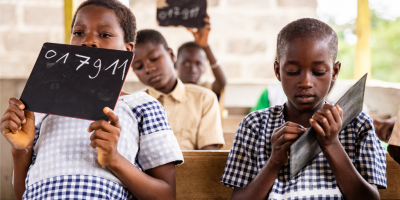Making sustainability ‘more inclusive’: RSPO adopts new palm oil standard for smallholders

The Roundtable on Sustainable Palm Oil (RSPO) wants to make its certification standard more inclusive.
Until now, the sustainable palm oil organisation has offered a generic certification standard for growers, millers, and their supply base – including scheme smallholders. However, this standard is largely ‘black and white’, according to the organisation’s Ashwin Selvaraj, “you are either compliant or non-compliant”.
Acknowledging it is more difficult for smallholder farmers to switch to 100% sustainable palm oil production under its generic Principles and Criteria (P&C) 2018 Standard[FS1] , the RSPO has tailored a new, phased approach: the Independent Smallholder (ISH) Standard.
The new standard applies to ‘independent’, and not ‘scheme’, smallholders. The RSPO defines independents as farmers who have the decision-making power to choose what is planted on the land. If a farmer is connected to a miller, a company or a grower who makes those decisions, the RSPO regards them a scheme smallholder farmer.
Catering to the 40%
Smallholder farmers produce almost 40% of total global palm oil, yet this figure can vary depending on the region. In South-East Asia, for example, typically 40% of production comes from smallholders, whereas in Africa and Latin America smallholders can account for 70-90%.
As of June 2019, a total of just 146,133 smallholder farmers globally had achieved RSPO certification. According to Selvaraj, who heads up RSPO’s Smallholder Programme, this suggests there has not been the same ‘exponential increase’ in certification among smallholders as there has been for bigger players.
“Smallholders are complying, but there were some issues where they were not able to comply [to the P&C 2018 Standard],” the programme head told journalists during a press briefing. “Some of those requirements do not apply to smallholders. When you’re talking about a 5,000-1,000 hectare plantation…the same doesn’t apply to a two-hectare farmer.”
A step-by-step approach to full compliance
The ISH Standard, which was approved today (6 November) during the RSPO Annual General Assembly, aims to simplify the generic standard in a step-by-step approach to take smallholders towards full compliance.
Under the new standard, smallholder cooperatives will have three years to achieve RSPO certification.
The first phase, known as the ‘eligibility phase’, is broadly an awareness step. At this stage, RSPO will undertake an outreach mission, smallholders will learn about certification and be trained in sustainable farming methods. At this entry-level, farmers are required to commit to certain practices. “It is at this point that certain practices, such as child labour, will have to be stopped,” Selvaraj explained.
The group will then have two years within which to progress to the second phase, known as ‘Milestone A’ – regarded an ‘interim phase of compliance’.
From here, independent smallholders have one year to move towards full compliance, known as ‘Milestone B’.
What is a smallholder farmer?
The term ‘smallholder’ is used often for farmers in varying circumstances, as there is no single definition in the palm oil sector. Accordingly, the RSPO International Smallholder Interim Group took this opportunity to determine a generic definition for its global standard.
“We define smallholders as anyone who has less than 50 hectares,” Selvaraj explained during a press briefing at RSPO’s RT17 in Bangkok, Thailand. While the global standard is 50, each producing country will adapt the standard to its local context.
The Independent Smallholder Standard defines a smallholder farmer as:
- Someone who is not a scheme smallholder.
- Someone who has a total oil palm production area of smaller or equal to 50 hectares, or smaller or equal to the maximum size defined in National Interpretations.
- Someone with the enforceable decision-making power on the operation of land and production practices; and /or
- Has the freedom to choose how they utilise the land, type of crops to plant, and how to manage them (whether and how they organise, manage and finance the land).
Incentivising smallholders
For smallholders earning a lower wage than other larger operators, including mills, companies, and large-scale growers, sustainability can be a hard sell.
Often, smallholders haven’t heard of RSPO and may be reluctant to change their practices, Selvaraj told us. “Livelihood takes priority.”
This is where the ISH incentivisation scheme comes in. From the eligibility phase onwards, farmers will receive financial benefits under the new standard. The incentives are also an investment in helping them move towards compliance, the programme head expanded.
Per the ISH Standard, farmers can already sell 40% of their volume as credits. Having achieved Milestone A, they can sell up to 70% of their volume as credits, and at Milestone B, they can sell 100% of their volume as a mixture of both physical supply chain or credits trading models.
Credit trading is a virtual model which connects smallholders with consumer goods manufacturers, brands, and retailers, without having to wait for their buyers to be certified.
Incentivisation will help cover costs incurred as farmers move towards certification, said Selvaraj. The standard requires smallholders to supply their workers with protective equipment, for example, which can prove costly. “The inventive model will motivate them to come into the system, but it will also address those financial gaps,” we were told.
‘It’s a robust system’
Unilever’s senior manager of sustainable sourcing, Ingrid Richardson, helped develop the standard alongside other industry professionals.
Voicing her support of the methodology at RT17 earlier today, Richardson said the mixed trading model at the Milestone B phase offers smallholders flexibility. “We need to support smallholders in multiple ways,” she elaborated.
“From a consumer goods company perspective, there stops being an excuse for not being able to buy physical smallholder volumes with this new model. But also, I think there is the space to buy credits to support smallholders along the way…so it’s a robust system.”




























